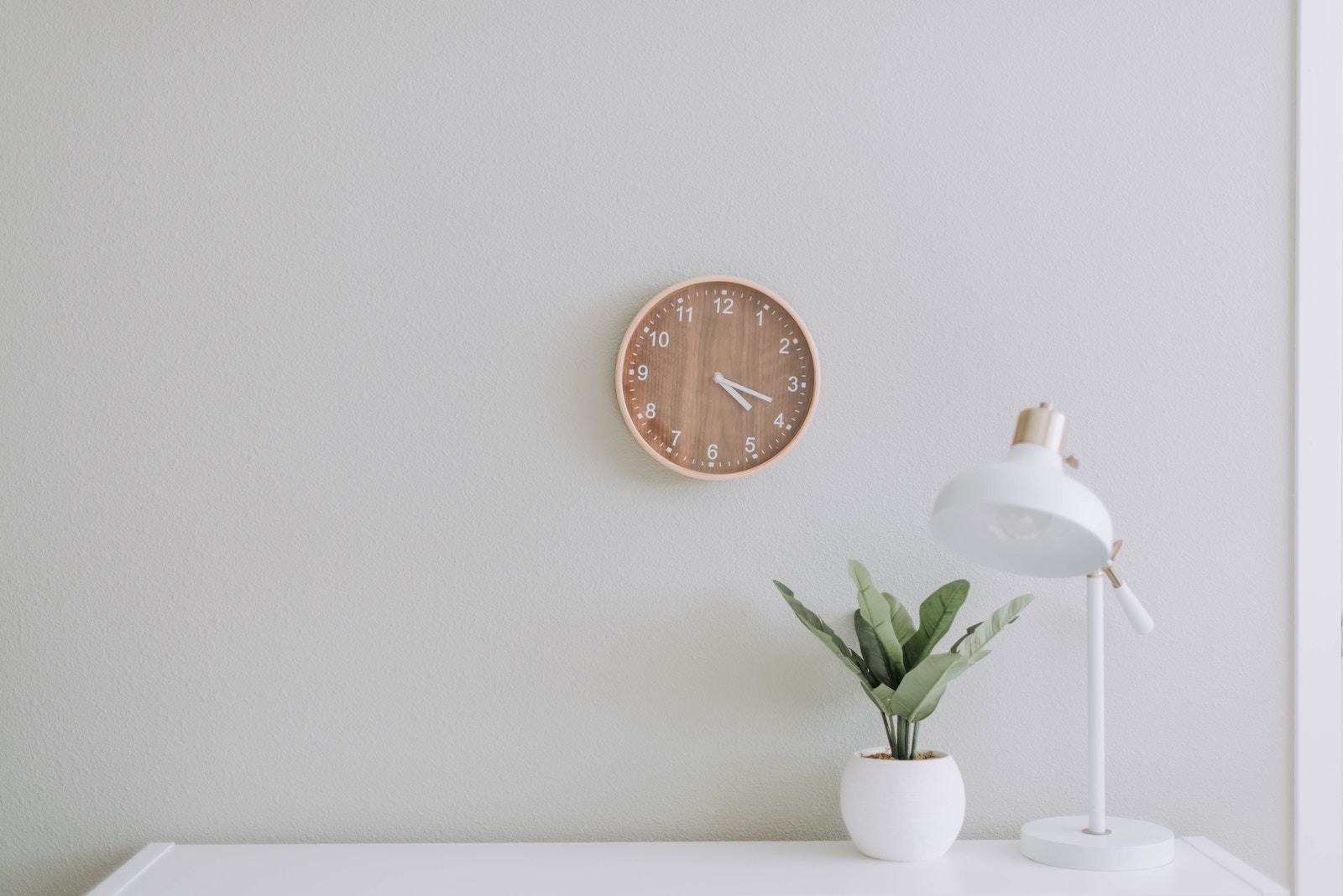Updated January 2019
Who really waits until work to check their email these days? In reality, many people start their workday in the Starbucks line or before they’re out the door (or the bed). Perhaps this is why mobile email is checked 3x more compared to desktop.
And it’s no wonder: We’ve seen email open rates consistently climb on mobile devices in the last several years. Combine this with the hours people spend on email at work, and well, that’s a lot of email.
Thirty hours a week, to be exact.
So, how can you, the email marketer, capitalize on all the time people spend in their inboxes? When can you get the highest open rate? In today’s article, we’ll discuss the best time to send email campaigns, based on data we’ve collected.
What’s the best time to send email campaigns?
According to our research, most opens occur as people are beginning their weekday, and the opens continue to happen until the evening hours, when they taper off. In other words, the best time to send email campaigns and other marketing materials is during typical work hours.
When can you get the highest open rate?
According to our data, over half of all opens happen between 9am – 5pm (excluding lunch time), meaning you can get the highest open rate by sending emails throughout the day.
Remember, however, the content of your email matters even more than the send time. Because personalization and automation together improve opens and ROI, you certainly don’t want to ignore these steps.
The data: then and now
A few years ago, we looked at data from over 192 million opens. We then asked Gary Elphick, mobile specialist at Tongue, for his thoughts.
Read on to learn more about email send time and whether you can improve your results by rethinking when and what you send.
When do opens occur?
First of all, knowing when to send really means knowing your recipients and their behaviors. So, do you know what time of day do people read their emails, how much time they have to do so and how exactly they spend that time?
Here’s when we observed people opening their email in the data pool from 2013:
% Email opens by hour – then
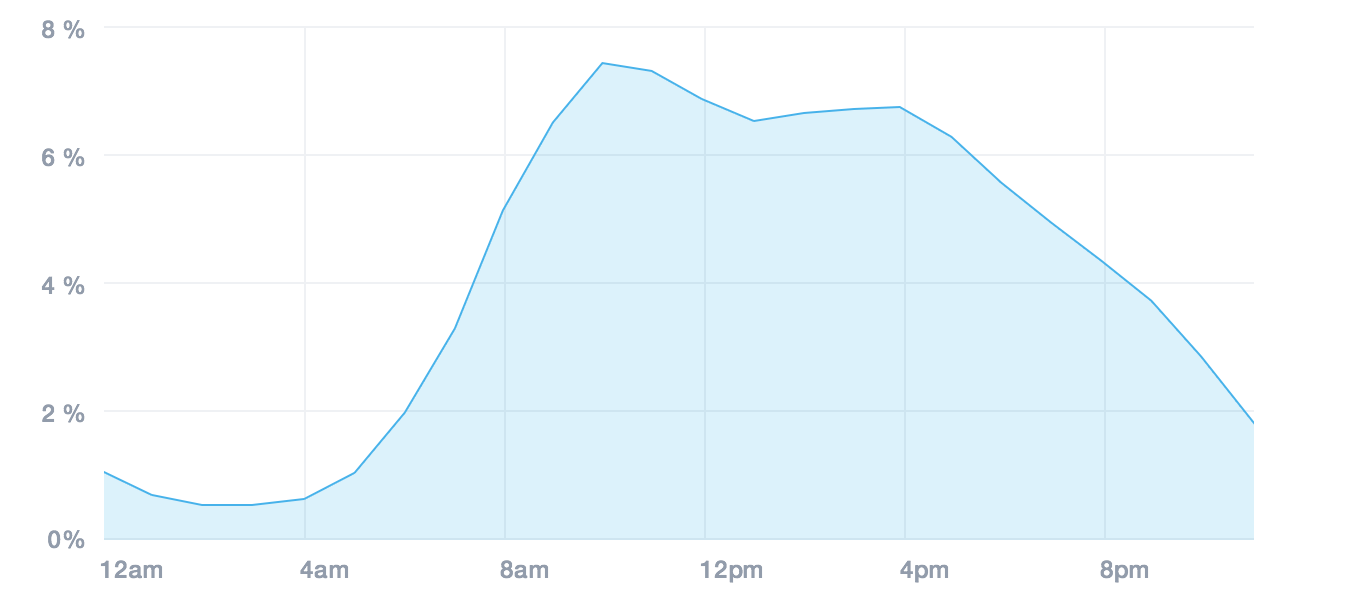
To make more sense of the above, we decided to have a look at what time of day emails were opened, based on the typical workday of getting up, going to work, then going home:
9am – 5pm (minus lunchtime) 53%
| Hours of the day | % Emails Opened |
| Midnight – 8am (before work) | 16% |
| 1pm (lunchtime) | 7% |
| 6pm – 11pm (after work) | 24% |
As can be expected, the pattern of opens increases as people begin to wake up and start their day, then subside again dwindle as they go to sleep. But it’s worth highlighting:
- Workday hours (9am – 5pm) are when over half of all email opens happen
- Peak open times are just before and after lunch
- Lunchtime opens only drop by a fraction
- Including lunch, 47% of emails are opened outside of work hours. Note that the majority of these “non-working” opens occur on mobile devices
Email opens by hour – now
According to a 2018 compilation of data from SuperOffice, the best time for email opens is actually late afternoon.
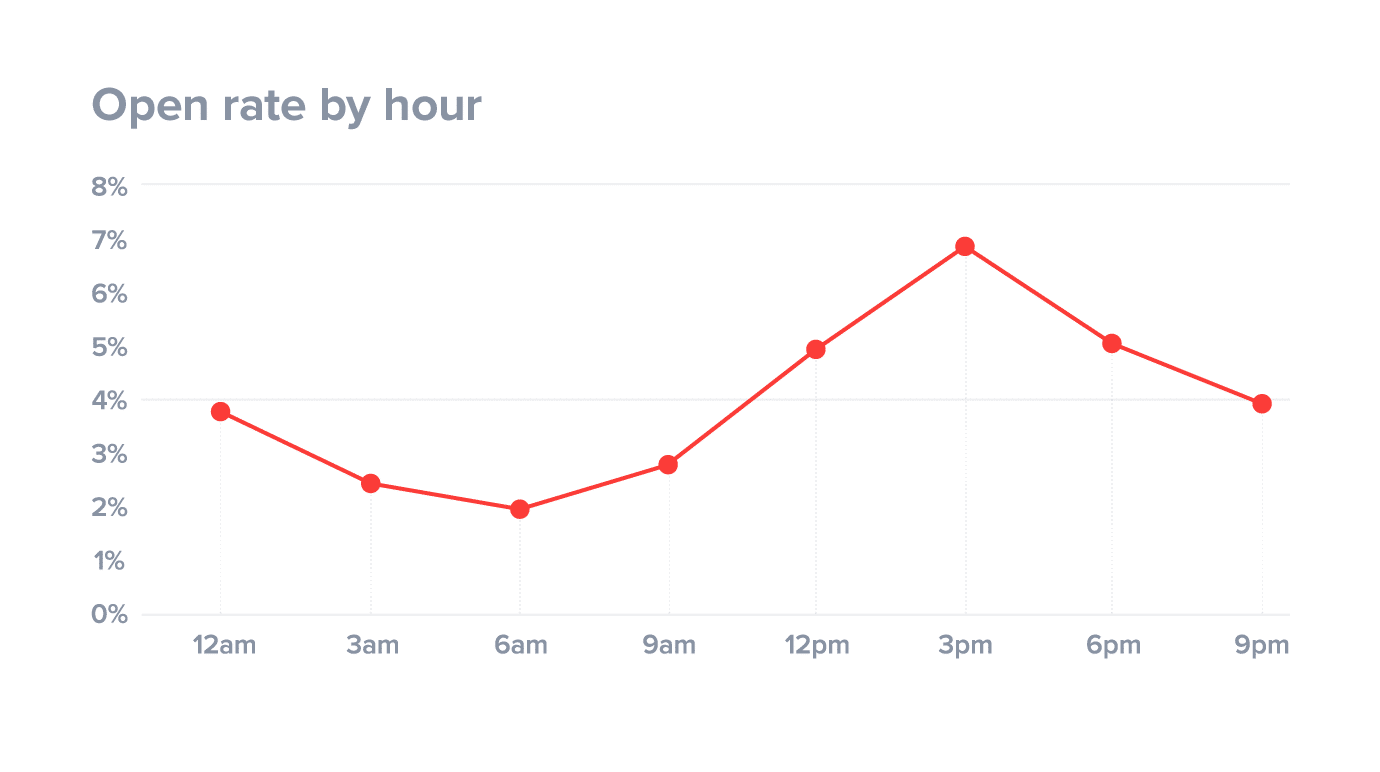
On the subject of devices, we also looked at which environments opens over time were happening:
% Email opens by device by hour – then
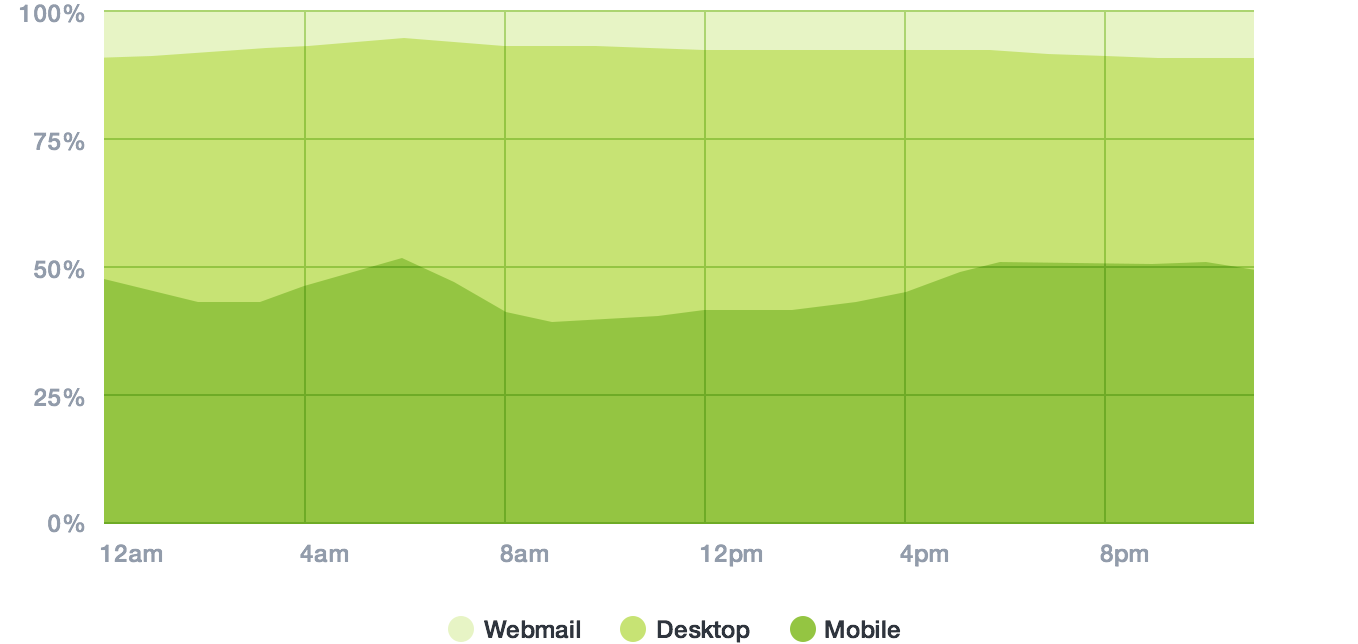
According to this data, it’s clear that there’s a relationship between time of day and the platform you use to open your email.
Based on the hour of the day, email opens on mobile and desktop environments have an inverse relationship. Before work and after hours, emails are opened on mobile phones and desktop opens decline.
During work hours, desktop opens increase and mobile opens decrease. This might seem fairly obvious, given that you’re likely to read your email on the train or bus commute to work (please don’t read emails while driving), then switch to your desktop, or laptop when you get to your destination. However, it’s interesting to see the data back this up.
Email click-to-open rates for mobile vs. desktop – now
It’s important to note how the data has transitioned. In fact, mobile devices recently reached parity with desktop in email click-to-open rates:
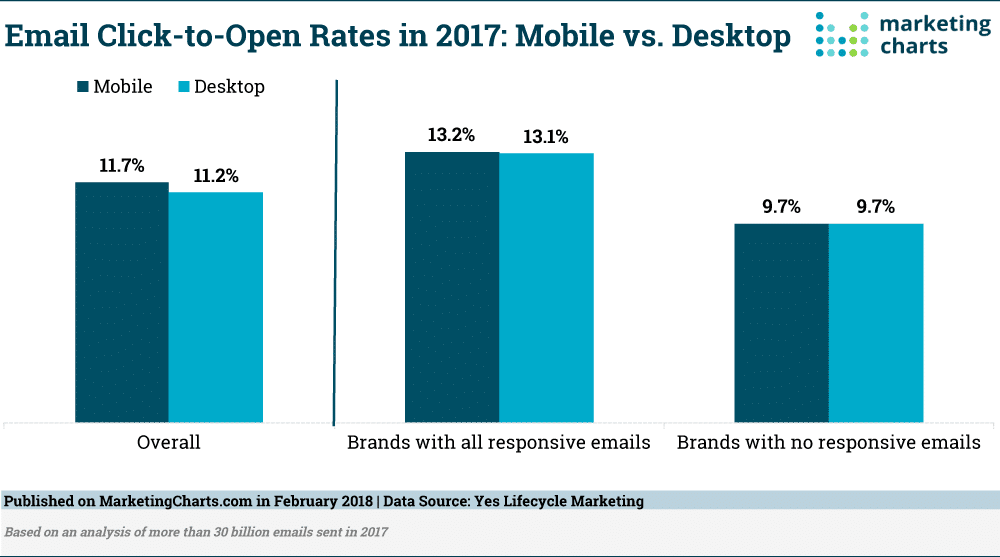
This means you should always optimize your emails for a mobile user experience. While desktop continues to be utilized, mobile devices are quickly becoming just as relevant for email users.
How do I optimize my email campaigns?
As you can see, the data continues to evolve, which means this:
While some email send times are more optimal than others, there is no one set hour for when you should send emails.
After all, almost half of emails are opened outside of work hours. So, how about optimizing what we send, instead of when?
We need to be thinking in the same ‘time windows’For insight into this, we called on Gary Elphick. As email marketers, Gary suggests we need to be thinking in the same “time windows” as our subscribers; being the different periods interacting with emails, depending on the device. These windows are:
- The 3-minute window, when you’re most likely opening email on a mobile device. For example, when waiting for coffee at your local, you have just about enough time for a quick scan of new emails, to forward on any urgent tasks and to take note of anything that needs to be revisited later when you have more time.
- The 5-minute window, when you’re most likely opening email on a mobile device. Say, in a cab between meetings, you have time for a couple of quick email responses, to action urgent items and respond to important people.
- The 10-minute window, when you could be either mobile or desktop. For example, at lunch you have just enough time to respond to not-so-urgent emails, file things you’ve done and re-read those emails scanned earlier.
To ensure email marketers make the most of their email program spend, Gary offered 4 key considerations to keep in mind, prior to sending:
- Time of day – What is the best time of day to send your email marketing messages? Can you optimize for the time of day you are sending and the device most likely to open your email?
- Brevity – How much can someone really read during the 3 minutes they have in the coffee line? Keep your copy to the point and make call-to-actions as clear as possible
- First words – The first words of your campaign in your subject line are incredibly important content, so craft them with thought.
- Mobile first – With mobile email open rates at 42% and growing, we need to optimize our email marketing for a mobile-first environment. Also, remember to test your landing pages on mobile; having someone tap through, only to end up on an unusable landing page is a terrible experience.
Many thanks to Gary for sharing his practical advice with us!
Wrap up
While there is no one magic hour to send emails, you now know inboxes are constantly being scrolled throughout the week.
By optimizing quality content, utilizing personalization and automation, and sticking to brief messages for your target demographic, you can increase your open rates.
Now, it’s over to you. Do you have a send time that works best or a technique that works better? Let us know in the comments below.
